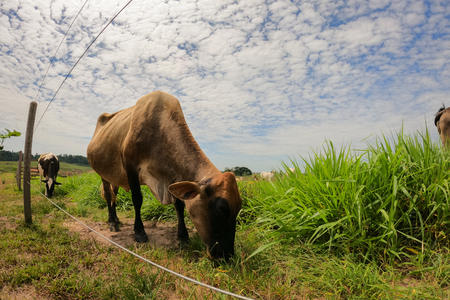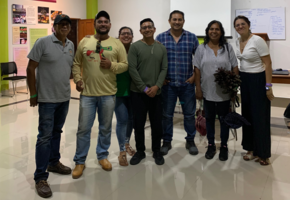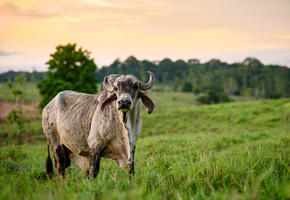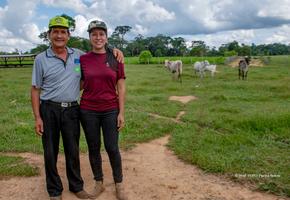Following the success of its pilot project in Madre de Dios, Climate Group has strengthened its existing partnerships with WWF Peru and the Tropical Forest Alliance to officially launch the Alliance for Regenerative Ranching in the Peruvian Amazon (AGRAP).
This initiative is part of the Coalition for Sustainable Production – a collaboration driving action, steering dialogue and encouraging commitments for deforestation-free supply chains in Peru.
The AGRAP partnership is working to recover and regenerate forests in the Peruvian Amazon. It’s doing this through regenerative ranching, a livestock practice designed to make agriculture more sustainable.

“It is necessary to work together and see how one can work on sustainability, always in a balance between the economic, social and environmental aspects. We need to communicate what is done well and disseminate successful models in which sustainable change is the result of a process where we respect the environment and animal welfare, and still earn money.”
“It is necessary to work together and see how one can work on sustainability, always in a balance between the economic, social and environmental aspects. We need to communicate what is done well and disseminate successful models in which sustainable change is the result of a process where we respect the environment and animal welfare, and still earn money.”
48% of GHG emissions in Peru come from deforestation, largely driven by agricultural activities (MINAM, 2023).
Widespread deforestation, both formal and informal, is leaving a clear mark on the landscape, with impacts on the climate, biodiversity, local communities and food security.
Shifting Amazonian cattle ranching towards regenerative systems – in other words, those that are free of deforestation – will help to restore ecosystems and improve the quality and competitiveness of Amazonian cattle ranching.
“Rural communities in the Amazon are already facing the effects of climate change, but they face additional challenges such as transportation, access to energy, etc. and eight billion people today depend on these rural communities. So the synergy that we see in this event is essential if we want to live in a world with a stable climate and enough food for everyone.”
“Rural communities in the Amazon are already facing the effects of climate change, but they face additional challenges such as transportation, access to energy, etc. and eight billion people today depend on these rural communities. So the synergy that we see in this event is essential if we want to live in a world with a stable climate and enough food for everyone.”
AGRAP was launched at an in-person event earlier this month in Lima, Peru. Partners were joined by a diverse range of organisations and civil society bodies, including:
- Proforest
- Conservation International
- The Ministry of Agrarian Development and Irrigation (MIDAGRI)
- The Ministry of the Environment (MINAM)
- Amazon Regional Commonwealth
- The British Embassy, Peru
Also in attendance were representatives from academia, livestock producers, international donors and national actors (producers, meat processors, regional governments and national governments).
Together they discussed the benefits of regenerative ranching and debated the practicalities of scaling these models across the region – looking at productivity, market development, traceability, enabling conditions and monitoring.
Local, regional and international organisations were given the opportunity to share best practice and feed into AGRAP’s action roadmap. This will determine how the partnership evolves – with the aim of driving growth, developing a shared vision and delivering faster action to protect the Peruvian Amazon and those local communities facing the first - and potentially worst - impacts of climate change.


